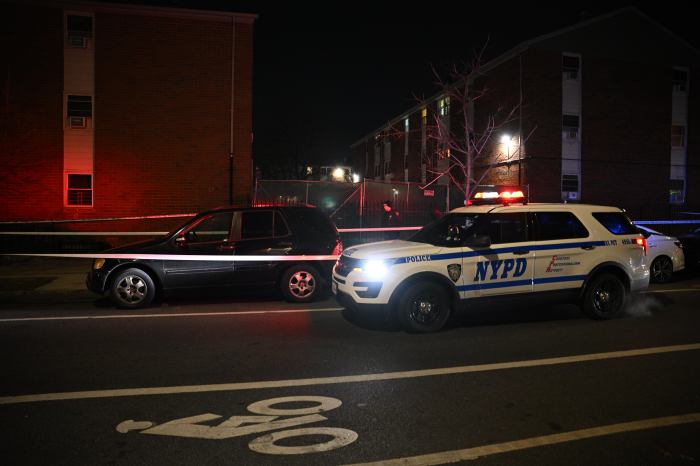
Gov. Andrew Cuomo announced legislation Tuesday that aims to close the gender wage gap by banning all employers from asking prospective employees about their former salaries.
Lawmakers hope that the bill will be law by the end of 2018, according to Lt. Gov. Kathleen Hochul, who rallied supporters clad in red hats and raincoats on Equal Pay Day from the steps of City Hall on Tuesday.
“Women have been held hostage to the lowest pay they received when they started their first job,” Hochul said.
While such a ban has been in place in New York City since Oct. 31, 2017, only public entities have been barred statewide from asking for salary history, enacted via an executive order Cuomo signed in January 2017. By expanding the regulation to cover all public and private employers, New York can “break the weight of this unfair, unequal cycle and work to achieve fair pay for all women in this state,” Cuomo said in a statement.

Women in New York earn the equivalent of 89 cents to every dollar earned by men, as surveyed in 2016, according to a pay equity report released Tuesday by the state Department of Labor titled “Closing the Gender Wage Gap in New York State.”
The gap further widens for New York women of color: African-American women are paid 64 cents for every dollar earned by a man and Latina women are paid 55 cents on the dollar, the report outlines.
“I say that’s wrong. You say that’s wrong?” Hochul asked, to which the crowd of hundreds responded with an enthusiastic “Yeah.”
“I say to all the employers who underappreciated, undervalued and underpaid the women of this state — It’s over. Time’s up. It’s over. You’re out of here,” Hochul said, promoting the new legislation.
A “very simple” step to help close the pay gap would be to promote transparency within companies, with a “salary that is posted and is conspicuous and is seen by all,” Public Advocate Letitia James said.

“We need to also reevaluate job functions and salaries to make sure the positions traditionally held by women — like teachers and social workers — are not undervalued compared to ‘man jobs’ like police officers, firefighters,” James said during the rally.
According to the report, which outlines a case study done with the FDNY, only 6 percent of the 11,000 city firefighters are women, a reality James said she was “fed up” with.
The sectors where the gender pay gap is most pronounced in New York State include — finance, real estate and insurance, where the pay gap is 68.6 percent, followed by information services with a 77.9 percent pay gap and education and health care services, where women are paid 78.3 percent of a male counterpart’s salary, according to the report.
“We won’t back down, and we no longer will be polite. We are demanding equal pay and we are demanding it now,” James said. “As Cardi B said, we need to make more money moves,” she added, dancing to the lyrics of the rapper’s 2017 hit, “Bodak Yellow.”
Other rally attendees included former E! News anchor Catt Sadler, who publicized her story of leaving the company after being informed that her male counterpart was making “significantly more, more than double” her salary, she said. She was denied more money during contract negotiations, after which a “light bulb went off” in her brain about just how many women struggle with pay inequality, she said.
City Councilwoman Carlina Rivera, who is one of only 11 women on the 51-member City Council, noted that women, in making up 52 percent of the population, do not come close to that level of representation in government.
“We have to remember the talent we possess, and we must speak on it. But we won’t do it for less than equal pay,” she said.



































